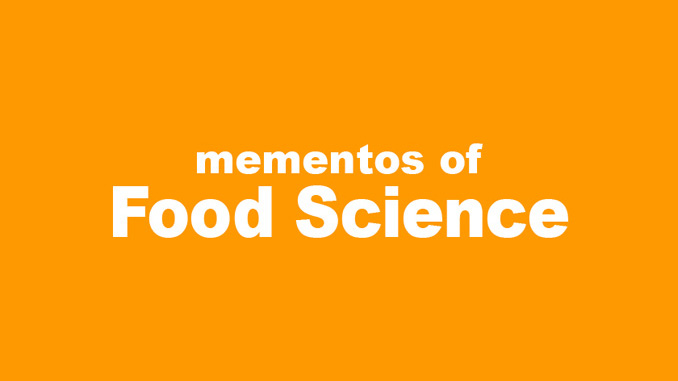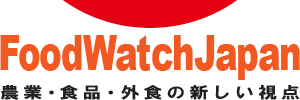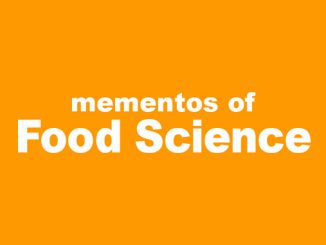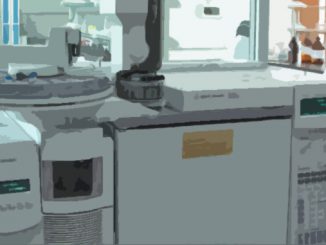
1990年代初頭、日米双方の政府は現代バイオテクノロジーによって開発された食品の安全性を評価するための政策や指針を作成した。日本においては、厚生省(当時)が1991年にOECDの指針を基にバイテク作物の安全性審査のための任意の指針を作成した。しかしながら、2001年にその安全性審査は日本において義務化されることになる。米国では、バイテク食品は今でも1992年に米国食品医薬品局(FDA)が作成した任意の指針の下に審査されている(Btなどの農薬特性やウイルス抵抗性を持つものについては例外。これらは米国環境保護庁(EPA)によって審査が義務付けられている。(詳細は、米政府規制官庁バイオテクノロジー統一サイトを参照のこと)現代バイオテクノロジー由来の食品の認可プロセスについて、なぜFDAは任意のままで、日本やオーストラリア、ニュージーランド、韓国、欧州といった国々は義務化しているのだろうか。
In the early 1990s, governments in the United States and Japan developed policies and guidelines for assessing safety of food developed using modern biotechnology. In Japan the MHW established voluntary guidelines in 1991 based on OECD guidelines for reviewing food safety of biotech crops. However, in 2001 Japan adopted a mandatory approval process. In the U.S. biotech foods continue to be reviewed for food safety under voluntary guidelines established by the Food and Drug Administration (FDA) in 1992. (Except for pesticide traits such as B.t. and virus resistance that require mandatory review by the EPA; see the U.S. Regulatory Agencies Unified Biotechnology Website,) Why has the FDA maintained a voluntary approach while Japan and other countries such as Australia, New Zealand, and Korea, as well as Europe have mandatory approval processes for foods derived from modern biotechnology?
米国における食品安全性に関する法的枠組みは、連邦食品・医薬品・化粧品法(食品法)に基づいている。この法律によって食品の安全性を保護する上で、FDAは法的手段を講じることが可能となる。またこの法律の下、FDAは、多くの新技術を規制している。例えば、低温殺菌、缶詰、フリーズドライ食品などである。FDAは法の執行権限を持ち、食品あるいはある個人が食品法に違反している場合法的手段を取ることができる。ゆえに企業は、法に従おうという強い動機を持つ。
食品法では、新しい食品添加物は食品に使われる以前に、FDAによって市販前承認を得ることとなっている。しかしながら、食品に添加される多くの物質はこの要件から除外されている。なぜなら、それらは食品において安全に使用されてきたという歴史から、または、一般に公開されており専門の科学者によって認められた科学的データから「一般に安全と認められている(GRAS)」からである。作物中に導入された遺伝子やそれらの発現たんぱく質が食品中に存在していれば、それらは添加物と見なされる。FDAは、すべての食品中に存在するDNAは「一般に安全と認められている」すなわちGRASと決めた。新しいたんぱく質が食品中に見つかるたんぱく質と近似していれば、あるいは、安全性がすでに確立されていれば、それもまたGRASと成りうる。「一般に安全と認められている」物質は、市販前承認を受ける必要はない。
仮に、あるたんぱく質が遺伝子導入によって食品中に導入された場合、それはGRASではない。その食品を市場に出すに当たって、そのたんぱく質は添加物として認可されなければならない。今までのところ、食品添加物として規制されているのは、カナマイシン耐性の遺伝子によって発現された選択可能なマーカー酵素だけである。しかし、新しく発現されたたんぱく質がGRASでなければ、FDAは常に市販前承認を義務付ける権限を持っている。
1992年、バイテク食品の安全性審査を定期的に行うようになるとは、FDAは予想していなかった。同年、政策の立案中、小さなベンチャー企業Calgene社が、同社のバイテク・トマト「Flavr Savr」の審査をFDAに求めてきた。ほかの企業もまた、FDAのアドバイスを求めてきた。FDAの科学者達は、Calgene社にしかるべき安全性試験について助言し、そして同社のデータを審査した。94年、その審査を終えるに先立って、FDAは食品諮問委員会を招集した。委員会のメンバーはすべてFDA外部の専門家である。委員会はFDAが検討したデータを審査し、92年の政策に概説された科学的アプローチは適切であると認めた。これによって、バイテク・トマト「Flavr Savr」に関する食品安全性関連のすべての問題が解決した。
食品諮問委員会の消費者団体の代表は、こうコメントした。「新しいトマトに関してFDAによって行われた総合的な審査は、初のバイテク食品ということにおいては有用であったが、『Flavr Savr』」トマトのように安全性について実質的な問題が何も持ち上がらなかった場合、はたして、今後のバイテク食品全てのケースについても同様の審査が必要であろうか」。その後の委員会で、FDAは、除草剤耐性ダイズやBtトウモロコシを含む幾種類かのバイテク食品のデータを提出したが、それらはすべて簡略審査に基づくものであった。
委員会は、FDAのやり方は科学的に適切なものであり、また同時に政府機関である局の資源を無駄なく適切に活用しようとしたものであると認めた。FDAは、企業に対して強く奨励はするが、FDAの科学者がその企業が行った試験は適切であるとかその食品が既存の同種の食品と同程度に安全であるという企業の結論と一致するかどうかを判断するために、十分なデータを局に提出するよう義務付けては決していない。バイテク企業は、FDAの政策を支持し、また局に意見を求めてくる。FDAの協議プロセスは任意のものであるが、現実的には、企業は市場導入に当たっての必要なステップと考えている。
義務的な承認手続きは日本を含むさまざまな国で成立しているが、政府に、たとえあったとしても、わずかな柔軟性しか与えない。なぜなら、承認されていなければ、そのバイテク食品は、すなわち違法となってしまうからである。この規制の柔軟性の欠如は、食品や飼料貿易に重大な影響を及ぼし得る。大量船積貨物に未承認のバイテク物質がほんのわずか存在することによって、問題が生じている。
Codex委員会は、農産物貨物にバイテク物質が低レベル存在することについての問題にどう対処するかその案を提示した。この案は、農産物貨物にバイテク物質が低レベル存在した場合、それによって健康問題が引き起こされるものかどうか各国の判断を助けることを意図している。この案は、今夏Codex委員会によって採択されることと思われる。はたして日本をはじめ他の諸国は、この案を歓迎するだろうか。バイテク物質が低レベル存在することへのCodex委員会のこのアプローチについては、いずれこの欄で議論したいトピックとなりそうだ。
*本稿で表記するバイテクは、遺伝子組換えを意味するものとする(FoodScience編集部)
The legal framework for food safety in the U.S. is based in the Federal Food, Drug, and Cosmetic Act (the act). The act gives FDA legal tools to protect food safety, and FDA has regulated many new technologies under the act, including pasteurization, food canning, and freeze dried foods. FDA has enforcement authority and can take legal action if food product or individual violates the act. Firms have a strong incentive to follow the law.
Under the act, new food additives require premarket approval by FDA before they can be used in food. However, many substances added to food are exempt from this requirement because they are generally recognized as safe (GRAS) based either on history of safe use in food or scientific data that is available to the public and recognized by expert scientists. Genes and their expressed proteins that are introduced into crops are considered to be added substances if they are present in the food. FDA has determined that DNA, which is present in all foods, is GRAS. New proteins that are similar to proteins found in food or whose safety has been established may also be GRAS. GRAS substances are not required to under go premarket approval.
If a protein introduced into food via gene transfer is not GRAS, it must be approved as a food additive for the food to be legal in the market. To date only the selectable marker enzyme expressed by the gene for kanamycin resistance has been regulated as a food additive, but FDA has authority to require premarket approval if a newly expressed protein is not GRAS.
FDA did not anticipate in 1992 that it would routinely review the safety of biotech foods. However, during development of the 1992 policy, a small entrepreneurial firm, Calgene Inc., asked for FDA’s review of its biotech food, Flavr SavrTM tomato. Other firms also sought FDA’s advice. FDA scientists advised Calgene on appropriate safety testing and reviewed the firm’s data. In 1994 prior to concluding its review, FDA convened a meeting of its Food Advisory Committee whose members are experts from outside FDA. The Committee reviewed the data that FDA had considered and agreed that the scientific approach outlined in the 1992 policy was sound and that all relevant food safety questions regarding the biotech tomato had been resolved.
A consumer representative on the Committee commented that the comprehensive review of the new tomato conducted by FDA had been useful for the first biotech food but questioned whether it was necessary in all cases if subsequent biotech foods, as was the case for the Flavr SavrTM tomato, did not raise substantive safety issues. In a later meeting of the Committee, FDA presented data based on abbreviated reviews for several additional biotech foods, including herbicide tolerant soybean and B.t. corn.
The Committee agreed that the approach FDA used was sound scientifically and was an appropriate use of agency resources. FDA strongly encourages but does not require firms to submit sufficient data to the agency to permit FDA scientists to determine whether the firm had conducted appropriate tests and whether the results agreed with the firm’s conclusion that the food is as safe as its conventional counterpart food. Biotech companies support FDA’s policy and consult with the agency. While FDA’s consultation process is voluntary, from a practical point of view, the biotech industry considers it to be a required step to the market.
Mandatory approval processes that have been enacted by various countries, including Japan, provide little if any flexibility to governments because any biotech food that has not been approved is a priori illegal. This lack of regulatory flexibility can have a significant impact on trade in food and feed. Problems have arisen due to very small amounts of unapproved biotech material in bulk shipments.
The Codex has developed a proposed approach that may help countries determine whether such small amounts of biotech material pose a health problem. This approach will be considered for adoption by the Codex this summer and assuming it is adopted, it will be interesting to see whether countries such as Japan find it useful. The Codex approach to low levels of biotech material may be a topic for a future column.
※このコラムは「FoodScience」(日経BP社)で発表され、同サイト閉鎖後に筆者の了解を得て「FoodWatchJapan」で無償公開しているものです。




